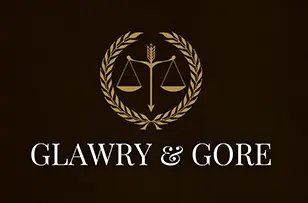FAU law students discuss law through media

This series
Series 5 consists of 11 episodes and was published in April 2025.
Episode 1
Glawry & Gore: The Iceman - two hundred frozen souls and one twisted mind
Emelie Eilers
Law student, FAU Erlangen-Nürnberg
Ruta Kauschke
Law student, FAU Erlangen-Nürnberg
- Category
- High profile cases
- Duration
- 13:47
- Keywords
- Mafia, mob, contract killings, psychological influences

In this episode, Emelie and Ruta present a portrait of a notoriously cold-hearted murderer with an outstanding modus operandi in the New Jersey mob scene.
The 1980s in America was a decade of significant change and transformation, marked by a shift towards conservatism, economic growth and technological advancements. The Mafia's traditional sources of income were increasingly challenged by legal competition and government regulation. In this period of fighting for re-establishment, the Gambino family was glad of any helping hand to make ends meet. Enter Richard Leonard Kuklinski. Hired as a professional contract killer, he claimed to have killed over 200 people.
Prof. Eilers and the show’s host examine Kuklinski's modus operandi which gave him the name "The Iceman", his psychological condition, and the extraordinary investigation process which ultimately led to his conviction.
Episode 2
From monster to sympathetic anti-hero: the portrayal of serial killers on TV and in social media and its effects
Lena Dieterich
Law student, FAU Erlangen-Nürnberg
David Ziegler
Law student, FAU Erlangen-Nürnberg
- Categories
- Law on TV, law through social media, high profile cases
- Duration
- 14:18
- Keywords
- Netflix, portrayal of serial killers
Why are TV shows such as Dahmer and Dexter, as well as movies such as American Psycho so popular?
In this episode David and Lena explore the appeal of serial killers in the media, the various ways these killers are portrayed, and the effects this has on society.
Episode 3
Reassessing the Menendez Brothers: From courtroom drama to (social) media sensation
Diana Maslina
Law student, FAU Erlangen-Nürnberg
Carina Tritthart
Law student, FAU Erlangen-Nürnberg
- Categories
- Law on TV, law through social media, high profile cases
- Duration
- 15:44
- Keywords
- Netflix, media influence, criminal justice
Social media as Justitia?
Today, (social) media plays a significant role in our daily lives. While it can have a positive impact, it also contains a lot of dangers. But how does social media and the media in general influence the criminal justice system? In this episode, Carina and Diana take a deep dive into the Menendez Brothers' case, which attracted – and still attracts – a lot of media attention. As law students, their focus in this episode is not only on the case facts but rather on the impact Netflix and social media has on the public's perception regarding this case. If this has sparked some interest, listen know to this in-depth look into the past to understand the present.
Episode 4
Exploring the role of the law for Jimmy McGill in the TV drama series Better Call Saul
Paul Leistl
Law student, FAU Erlangen-Nürnberg
Philipp Schüpferling
Law student, FAU Erlangen-Nürnberg
- Category
- Crime and courtroom dramas
- Duration
- 11:27
- Keywords
- attorneys, defence lawyers, respect for the law, (un)ethical behaviour
This episode explores the role of the law in Jimmy McGill’s life in Better Call Saul, analyzing his moral struggles and legal career.
Hosts Philipp and Paul focus on Jimmy’s reinstatement hearing, where his seemingly heartfelt speech about the law is rejected due to his history of unethical behaviour. They discuss his early idealism, the influence of his brother Chuck, and his transformation into the morally ambiguous Saul Goodman. The episode highlights his conflicts with Chuck’s partner in the law firm, Howard Hamlin, his manipulative tendencies, and his inability to separate his conman instincts from his legal practice. Ultimately, the discussion concerns itself with the entire legal system, reflecting Jimmy's internal struggle.
Episode 5
Guilt and memory: "The Reader" in film and literature
Nathalie Schneider
Law student, FAU Erlangen-Nürnberg
Marleen van Doesburg
Law student, FAU Erlangen-Nürnberg
- Category
- Law through film and literature
- Duration
- 17:40
- Keywords
- justice, mortality, historical legal events
In this episode, Marleen and Nathi explore The Reader by Bernhard Schlink and its film adaptation, diving deeply into the complex layers of guilt, responsibility, and historical memory. They discuss the novel’s narrative structure, the key themes of justice and morality, and how they translate onto the screen. What can this story teach us about collective and personal guilt?
Episode 6
The privileged Executive in the US: Trump and Nixon
Wiktoria Koczolap
Law student, FAU Erlangen-Nürnberg
Martin Lippa
Law student, FAU Erlangen-Nürnberg
- Category
- Law in practice
- Duration
- 18:24
- Keywords
- presidential immunity, US Supreme Court, executive power
July 2024. A historical judgment shakes the USA and the world. The United States Supreme Court decides on Donald Trump’s immunity.
This judgment, its predecessor, the situations leading up to them, and their consequences are discussed in detail by Martin and Wiktoria in this episode.
Episode 7
A criminal for president – the media reaction to Trump’s trials
Philipp Farchmin
Law student, FAU Erlangen-Nürnberg
Lena Tobisch
Law student, FAU Erlangen-Nürnberg
- Categories
- Law in practice, high profile cases
- Duration
- 11:07
- Keywords
- US presidential elections, criminal trials, politics and justice
In this episode, Lena and Philipp discuss the impact of Donald Trump’s conviction in the Hush Money Case and how both the media and the public reacted to the verdict. We explore how Trump strategically leveraged his legal troubles as a key part of his election campaign, turning the trial into a political tool. Join us as we break down the intersection of law, politics, and media in one of the most unprecedented moments in U.S. history and analyze the broader implications for American politics and justice.
Episode 8
"World's best podcast"
Aisling Peköz
Law student, University College Cork, Ireland / FAU Erlangen-Nürnberg
Joos Schweickhardt
Law student, FAU Erlangen-Nürnberg
- Categories
- Law and news journalism, law and social media, law and technology
- Duration
- 17:00
- Keywords
- AI, disinformation, misinformation
If knowledge is power, then misinformation is kryptonite
Dive into the world of mis- and disinformation to see what happens when the pen and the sword team up to become a most dangerous weapon. From Covid 19 to advancing AI, Aisling and Joos inform their listeners about everything they didn’t know they didn’t know.
Episode 9
AI in the Legal System
Simon Arzberger
Law student, FAU Erlangen-Nürnberg
Michael Knorz
Law student, FAU Erlangen-Nürnberg
- Categories
- Law and technology, law in practice
- Duration
- 13:16
- Keywords
- AI, judicial system, digitalisation
A debate about the use of AI in the legal system in respect of current possibilities in the USA, the UK and Germany, its potential development and ethical problems.
As one of the hottest topics in IT and the legal field, AI opens up new possibilities for many involved in the law, whilst also creating novel and unforeseen problems. In this episode, Michael and Simon discuss the advantages of the increasing use of AI and its possible downsides, and present current applications in the USA, the UK and Germany.
Episode 10
Social media and war crimes – The chances and risk of social media for the prosecution of war crimes in the Ukraine War
Rüdiger Hilt
Law student, FAU Erlangen-Nürnberg
Sebastian Langner
Law student, FAU Erlangen-Nürnberg
- Categories
- Law and social media, law and news journalism
- Duration
- 13:22
- Keywords
- fake news, war crimes, Ukraine war, prosecution, ICC, universal jurisdiction
The War in Ukraine is one of the most documented conflicts in history.
Everyone can create footage with the help of smartphones and share it with the world in real time by uploading it to social media. While this can help to shed light on potential war crimes being committed, it also creates a challenge as manipulated footage can be used for propagandistic purposes.
In this episode, Rüdiger and Sebastian talk about how social media can be and has been used during the war. They discuss how to differentiate between truthful posts and fake news and show the risks of manipulated content. They also also demonstrate how social media can be used to prosecute war criminals and explain how perpetrators can be tried in Germany using the principle of universal jurisdiction.
Episode 11
Fact vs. fiction: courtrooms in real life and on screen
Sophia Haide
Law student, FAU Erlangen-Nürnberg
Sascha Schott
Law student, FAU Erlangen-Nürnberg
- Categories
- Crime and courtroom dramas, law in practice
- Duration
- 14:42
- Keywords
- stereotypes, forensic evidence, influences on jurors
In the final episode of this series, Sascha and Sophia explore the accuracy of courtroom dramas and their impact on public perception of the legal system. This episode takes a deeper look into the courtroom genre, highlighting common legal stereotypes and contrasting them with real courtroom practices.
One important aspect is the so-called CSI Effect, which may influence jurors due to the importance attached to forensic evidence in crime dramas.
The discussion concludes with key takeaways on how courtroom dramas can shape our understanding of the legal system.